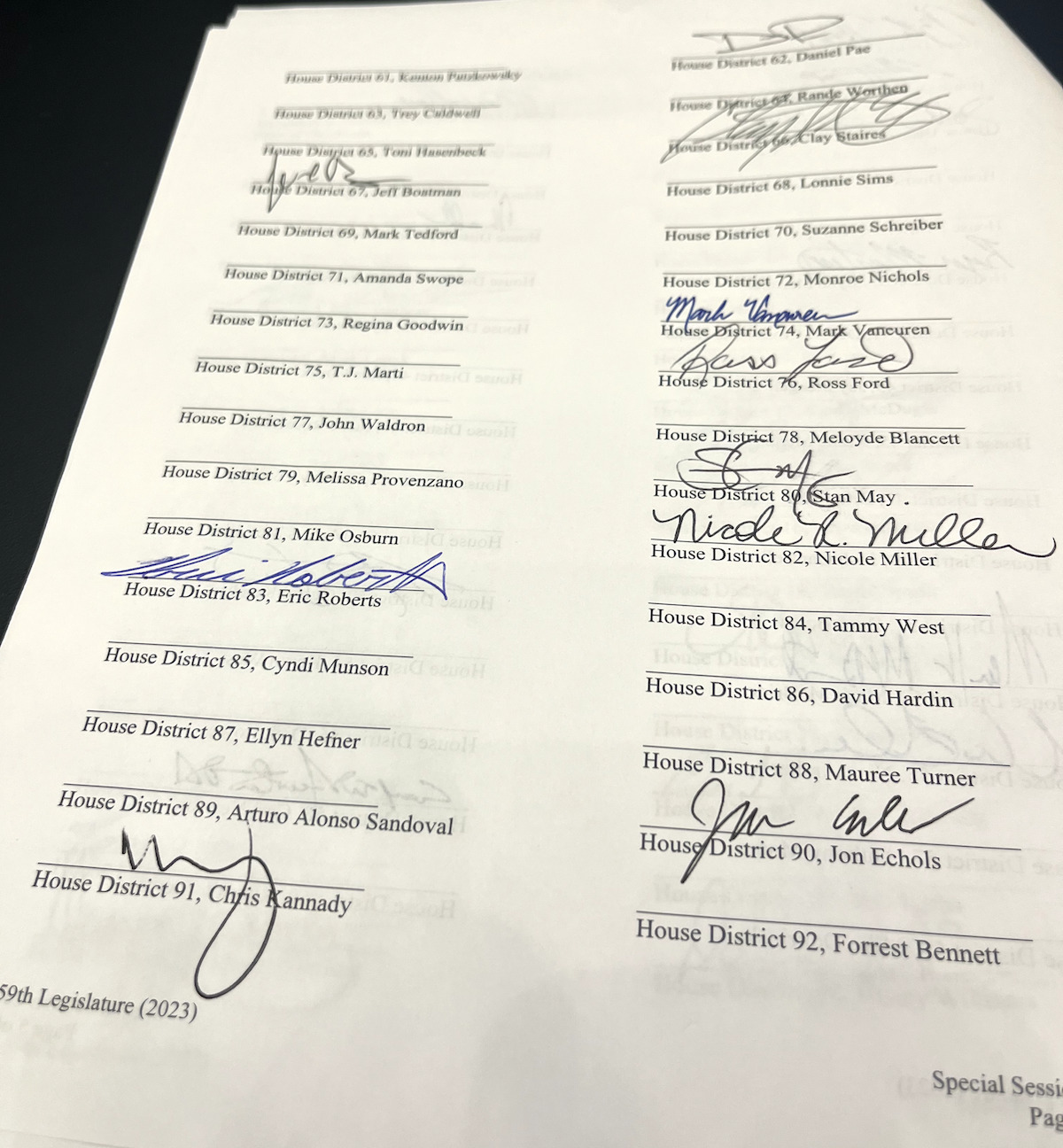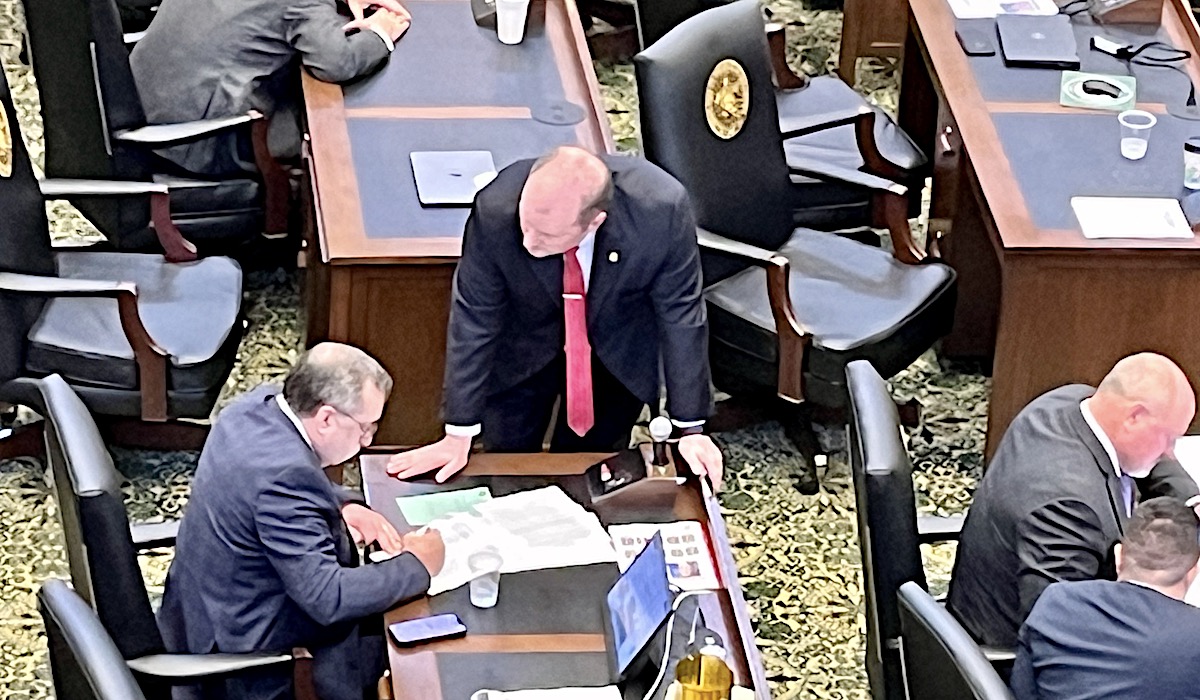
Facing a 5 p.m. May 26 deadline to adjourn the year’s regular session, leaders of the Oklahoma Legislature are circulating petitions to call themselves into a concurrent special session to create more time for Fiscal Year 2024 budget negotiations and make sure they have a chance to override any potential vetoes from Gov. Kevin Stitt.
House Majority Floor Leader Jon Echols (R-OKC) spent a portion of his Tuesday morning collecting signatures for the special session call from representatives on the floor. Article 5, Section 27A of the Oklahoma Constitution allows legislators to convene an extraordinary session if two-thirds of both chambers agree to the call.
NonDoc obtained a photo of the document being signed by House members.

Multiple senators speaking on background confirmed that the Senate is circulating a similar document for signatures. If approved by two-thirds of members in both chambers, the concurrent special session would run simultaneously with regular session, extending into June as necessary. Some budget bills may be run through regular session this week, with others run through the concurrent regular session. That would involve lawmakers gaveling into and out of concurrent special session and regular session as they did in 2020 during the COVID-19 pandemic.
During his first four years as governor, Stitt has vetoed significant portions of the Legislature’s budget three times. Each time, lawmakers have voted in supermajority blocks to override many of Stitt’s vetoes and cram their budgetary preferences down the governor’s gullet and into law.
When lawmakers filed their concurrent special session call with the Oklahoma Secretary of State’s office, it revealed their purpose parameters for the topics they will consider:
- Appropriation of funds for the annual state budget for Fiscal Years 2023 and 2024;
- Legislation related to implementing and administering budget related funds; or
- Expenditures of federal funds pursuant to the American Rescue Plan Act of 2021.
‘One of the worst sessions’

While the origin of the concurrent special session idea remains unclear, lawmakers involved in budget negotiations have known their train was running way behind time.
On April 24, House Appropriations and Budget Chairman Kevin Wallace (R-Wellston) called the 2023 regular session “probably one of the worst sessions that I have been in.” Neither he nor Senate Appropriations and Budget Chairman Roger Thompson (R-Okemah) attended Monday’s announcement of the massive education deal that had stalled broader budget negotiations for months.
“We’re working. We’re going to continue to work on our constitutional obligation,” House Speaker Charles McCall (R-Atoka) said during Monday’s press conference. “We still have a lot of work to do.”
Owing to the contentious education funding negotiations that — in the words of Senate President Pro Tempore Greg Treat (R-OKC) — sucked all of the oxygen out of the room, Wallace and Thompson have had less time than normal to discuss the rest of the state budget before the May 26 deadline.
By calling a concurrent special session, lawmakers will be able to take more time in crafting the state budget for Fiscal Year 2024, which begins July 1. Major undecided issues related to the FY 2024 budget include questions about tax policy, housing programs, transportation matters, infrastructure projects, a proposed new investment fund and a request for $245 million in funding to support a proposed Panasonic battery plant.
Lawmakers have been told to block off Monday, June 12, on their calendars for returning to the State Capitol to override any potential vetoes from the governor.
(Update: This article was updated at 9:20 a.m. Friday, May 29, to include the specified purpose for the concurrent special session.)





















